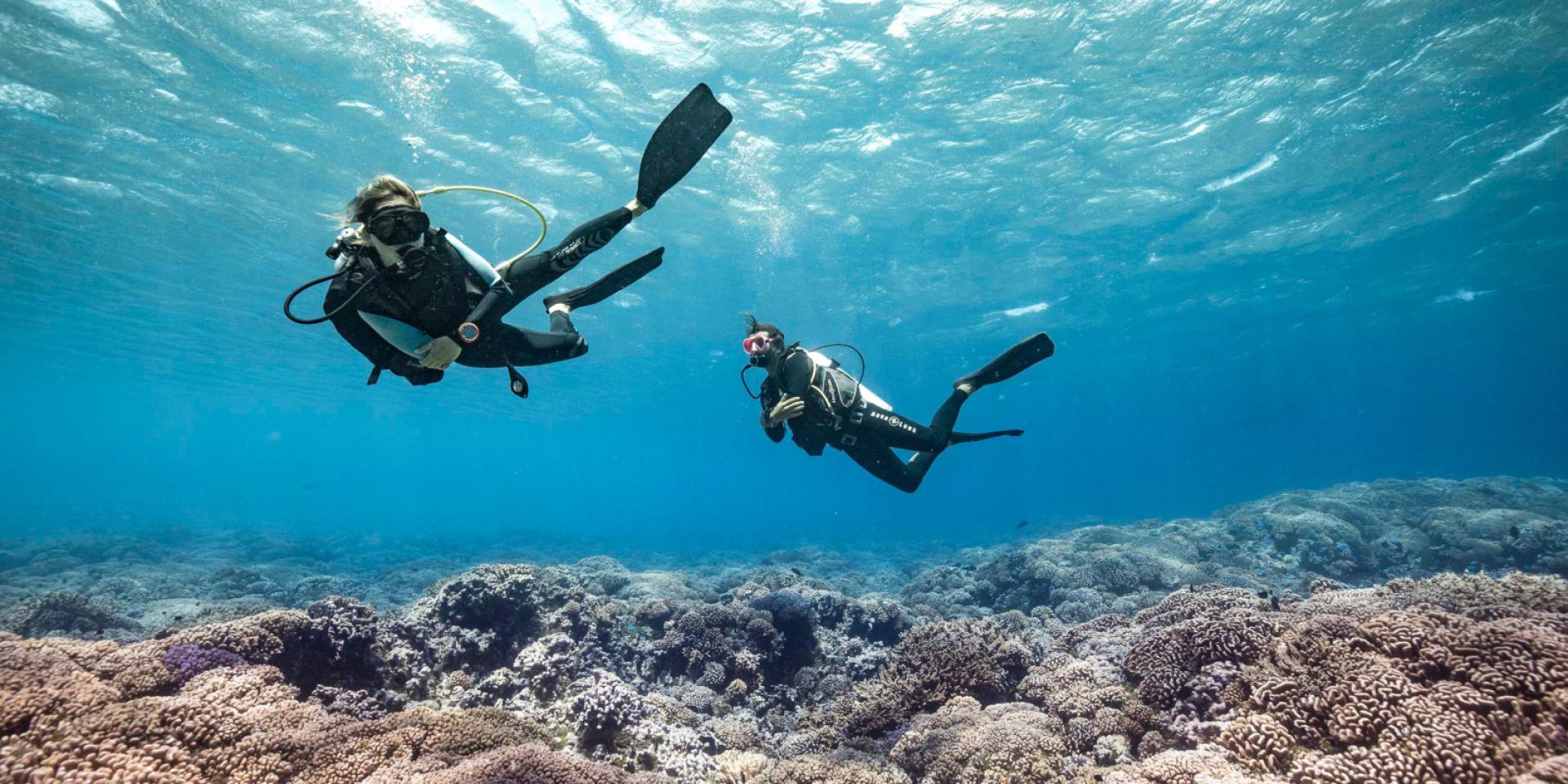There are dive centers of an international standard in Tahiti, Moorea, Raiatea, Taha’a, Huahine, Bora Bora, Rangiroa, Manihi, Fakarava, Tikehau, Nuku Hiva, Rurutu.
You can dive all year round in The Islands of Tahiti.
 Diving in Fakarava - Tahiti Tourisme
Diving in Fakarava - Tahiti TourismeThere are dive centers of an international standard in Tahiti, Moorea, Raiatea, Taha’a, Huahine, Bora Bora, Rangiroa, Manihi, Fakarava, Tikehau, Nuku Hiva, Rurutu.
You can dive all year round in The Islands of Tahiti.
Visibility is about 39 meters. The ocean temperature is 26°C in winter and 29°C in summer. The temperature drops 50% between the surface and a depth of 50 meters. A light wetsuit of 3 mm or even a lycra is all that’s needed at any time of year.
Divers can observe an incredibly rich variety of species, from little butterflyfish and beautiful coral gardens to napoleon fish, barracudas, manta rays, reef sharks, moray eels, eagle rays, triggerfish, tuna, groupers, hammerhead sharks, whitetip sharks, to name but a few. The sharks are not aggressive in Polynesia, although it’s always safer to not to approach them too closely.
Divers have a variety of different zones to explore:
Normal diving conditions in Polynesia are warm waters, not very deep and with excellent visibility. The currents aren’t strong, except in the passes. Excursions are in the company of an experienced guide who is also an instructor. In the event of an accident, medical evacuations by helicopter and airplane are available day and night. Tahiti’s sea search and rescue service is equipped with modern recompression chambers and a team of doctors qualified in hyperbaric medicine.
Most dives are to depths of between 9 and 25 meters. Dives to greater depths, between 30 and 42 meters, are open to more experienced divers. Some dive centers organize explorations and drift dives exclusively for experienced divers.
The dive centers can hire out all the necessary equipment. Usually, bottles and dive belts are included in the price of the excursion. Buoyancy compressors, regulators and dive computers are available for hire, and some centers include the whole package (except the dive computers) in the excursion fee. Thanks to the perfect diving conditions, even beginners are sure to have a breathtaking experience. Many of the centers provide instruction courses for all levels for the following certificates: CMAS (Confédération Mondiale des Activités Subaquatiques), FFESSM (Fédération française d’études et de Sports Sous-Marins) and PADI (Association Professionnelle des Instructeurs de Plongée). NAUI et SSI are also recognized certificates in Polynesia.
Most travel insurance policies do not include cover for underwater diving. The DAN (Diver’s Alert Network) or your travel agent will be able to advise you on where to obtain the appropriate cover.